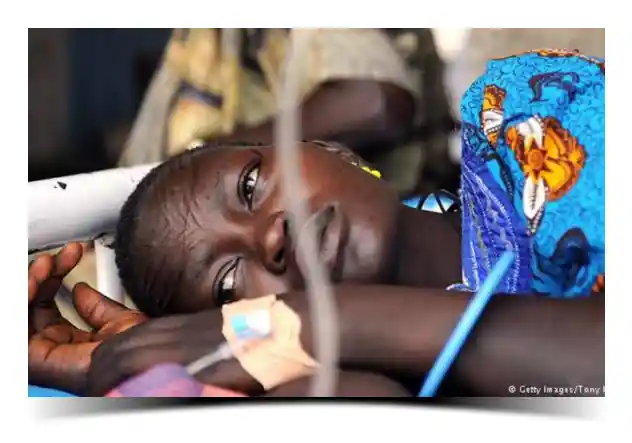Malaria remains one of Nigeria’s most persistent health challenges, affecting millions of people every year. Despite advances in medicine and public health awareness, the disease continues to pose a major threat, especially during rainy seasons when mosquito breeding increases. According to the World Health Organization (WHO), Nigeria accounts for approximately 27% of global malaria cases, making it one of the hardest-hit countries in the world.
This comprehensive guide explains the latest malaria treatments, proven prevention methods, and myths about malaria that need to be debunked for effective control.
TJ News Nigeria reports that early diagnosis, consistent preventive measures, and widespread health education remain Nigeria’s best defense against this life-threatening disease.
Pay Attention To:
Stress and Insomnia in Nigeria: Causes, Symptoms, Types, Remedies, and Sleep Tips
Lassa Fever in Nigeria: Early Signs, Symptoms, Causes, and Prevention
What is Malaria?
Malaria is a life-threatening disease caused by Plasmodium parasites, which are transmitted to humans through the bites of infected female Anopheles mosquitoes. There are five types of Plasmodium species that infect humans, but Plasmodium falciparum is the most common and deadliest strain in Nigeria and across Africa.
Symptoms often include:
- Fever and chills
- Headache
- Fatigue
- Muscle aches
- Nausea or vomiting
- In severe cases: anemia, seizures, and organ failure
Malaria is both preventable and treatable, but delays in treatment increase the risk of complications and death.
Latest Malaria Treatments in Nigeria
Healthcare authorities in Nigeria have aligned with WHO guidelines, recommending Artemisinin-based Combination Therapies (ACTs) as the first-line treatment for uncomplicated malaria. These therapies combine two drugs to ensure complete parasite clearance and reduce drug resistance.
1. Artemisinin-Based Combination Therapies (ACTs)
ACTs are widely available in pharmacies and hospitals. Common combinations include:
- Artemether-Lumefantrine (AL)
- Artesunate-Amodiaquine (AS-AQ)
- Artesunate-Mefloquine (AS-MQ)
2. Intravenous Artesunate for Severe Malaria
For severe cases, intravenous artesunate is the preferred treatment in hospitals. It is faster-acting and more effective than quinine, which was once the standard therapy.
3. Intermittent Preventive Treatment (IPT)
Pregnant women are particularly vulnerable to malaria. The Nigerian Federal Ministry of Health recommends Intermittent Preventive Treatment in Pregnancy (IPTp) using sulfadoxine-pyrimethamine (SP) at regular intervals to protect both mother and child.
4. Rapid Diagnostic Tests (RDTs)
Healthcare facilities increasingly use Rapid Diagnostic Tests to confirm malaria infection before prescribing treatment. This helps avoid unnecessary medication and supports antibiotic stewardship.
Malaria Prevention: Proven Tips for Nigerians
Prevention remains the most effective strategy against malaria. Here are WHO-endorsed and Nigerian Centre for Disease Control (NCDC) recommended measures:
1. Use of Insecticide-Treated Nets (ITNs)
Sleeping under long-lasting insecticidal nets (LLINs) reduces malaria transmission significantly. The Nigerian government and NGOs often distribute these nets for free in high-risk areas.
2. Indoor Residual Spraying (IRS)
Spraying insecticides inside homes kills mosquitoes that rest on walls and ceilings. This approach is highly effective in urban and semi-urban areas.
3. Environmental Sanitation
Mosquitoes breed in stagnant water. Communities should:
- Clear blocked gutters
- Cover water storage containers
- Remove discarded tires and containers
4. Preventive Medication for Travelers
People traveling to malaria-endemic regions in Nigeria should consult health professionals for prophylactic medication.
5. Use of Mosquito Repellents
Repellents containing DEET, picaridin, or oil of lemon eucalyptus can protect exposed skin, especially during evening hours when mosquitoes are most active.
Common Myths About Malaria Debunked
Despite decades of awareness campaigns, misconceptions about malaria persist. These myths delay treatment and increase risks.
| Myth | Fact |
|---|---|
| Malaria only spreads through dirty environments | Malaria is caused by a parasite transmitted through mosquito bites, not dirt alone. Mosquitoes breed in stagnant water, which may be clean or dirty. |
| Herbal mixtures can cure malaria | There is no scientific evidence that herbal remedies cure malaria. WHO recommends ACTs as the only effective treatment. |
| Once treated, malaria won’t return | People can get malaria repeatedly because immunity is partial and temporary. |
| Malaria is a “childhood disease” only | Adults are also at risk, particularly pregnant women and those with compromised immunity. |
Malaria Burden in Nigeria: Key Statistics
According to WHO’s 2024 World Malaria Report:
- Nigeria accounts for ~27% of global malaria cases.
- Over 200 million Nigerians are at risk annually.
- Malaria causes over 160,000 deaths yearly, mostly among children under five.
- Pregnant women face a high risk of severe complications.
The Nigerian government and international partners are working to reduce malaria transmission through awareness campaigns, free distribution of insecticide-treated nets, and improved access to ACTs.
Government and NGO Efforts to Fight Malaria
Nigeria’s National Malaria Elimination Programme (NMEP) leads the nationwide malaria control strategy. Efforts include:
- Mass net distribution campaigns in rural and urban areas.
- Routine malaria testing in primary healthcare centers.
- Partnerships with WHO, UNICEF, and USAID to provide ACTs and RDTs.
- Community health workers trained to deliver early malaria diagnosis and treatment.
Private-sector players are also supporting malaria eradication efforts through corporate social responsibility (CSR) initiatives.
Why Malaria Remains a Challenge in Nigeria
Despite global progress, malaria eradication in Nigeria faces major hurdles:
- Widespread poverty limits access to healthcare.
- Insecticide resistance among mosquito populations.
- Fake and substandard malaria medications in circulation.
- Poor infrastructure in rural areas.
- Climate factors like prolonged rainy seasons that boost mosquito breeding.
Steps Nigerians Can Take to Stay Protected
To reduce malaria transmission:
- Sleep under insecticide-treated nets.
- Test before treating malaria symptoms.
- Follow prescribed ACT doses completely.
- Clear stagnant water around homes.
- Seek medical attention immediately if symptoms worsen.
Public health education and personal responsibility remain crucial in reducing Nigeria’s malaria burden.
FAQs About Malaria in Nigeria
1. What is the main cause of malaria in Nigeria?
Malaria is caused by Plasmodium parasites, which are transmitted to humans through bites from infected female Anopheles mosquitoes. The most dangerous species in Nigeria is Plasmodium falciparum.
2. Can malaria be completely cured?
Yes. Malaria is completely curable if diagnosed early and treated with Artemisinin-based Combination Therapies (ACTs). Severe cases require intravenous artesunate under hospital supervision.
3. How can I prevent malaria at home?
You can reduce malaria risk by:
- Sleeping under insecticide-treated nets.
- Spraying insecticides indoors.
- Removing stagnant water around your home.
- Wearing long clothing and using mosquito repellents.
4. Is malaria contagious from person to person?
No. Malaria is not contagious and cannot spread directly from one person to another. It is only transmitted through mosquito bites.
5. Can herbal medicine cure malaria?
There is no scientific evidence that herbal mixtures cure malaria. WHO recommends ACTs as the standard treatment. Herbal remedies may help with symptoms, but they are not a substitute for approved medication.
6. Why is malaria still common in Nigeria?
Malaria persists due to poverty, poor sanitation, counterfeit drugs, insecticide resistance, and climate factors that favor mosquito breeding.
7. What should I do if malaria symptoms don’t improve after treatment?
If symptoms persist, return to a healthcare provider immediately. This could be due to drug resistance, incorrect medication dosage, or another illness with similar symptoms.
8. Can pregnant women take malaria drugs?
Yes, but only those recommended by a doctor. Pregnant women in Nigeria are advised to take Intermittent Preventive Treatment in Pregnancy (IPTp) with sulfadoxine-pyrimethamine (SP) at specified intervals.
9. How soon do malaria symptoms appear after a mosquito bite?
Symptoms typically appear 10–15 days after being bitten by an infected mosquito. However, they can take longer if you are partially immune or taking preventive medication.
10. Is there a malaria vaccine available in Nigeria?
Yes. The RTS,S/AS01 (Mosquirix) vaccine has been approved and introduced in some African countries. Nigeria is working toward full rollout to reduce severe malaria cases in children.
What you should know
Malaria is a preventable and treatable disease, but Nigeria’s high infection rates demand constant vigilance. The combination of effective treatments, proven prevention methods, and community-driven efforts can drastically reduce malaria-related deaths. By debunking myths and embracing science-backed solutions, Nigerians can play a vital role in breaking the transmission cycle.







